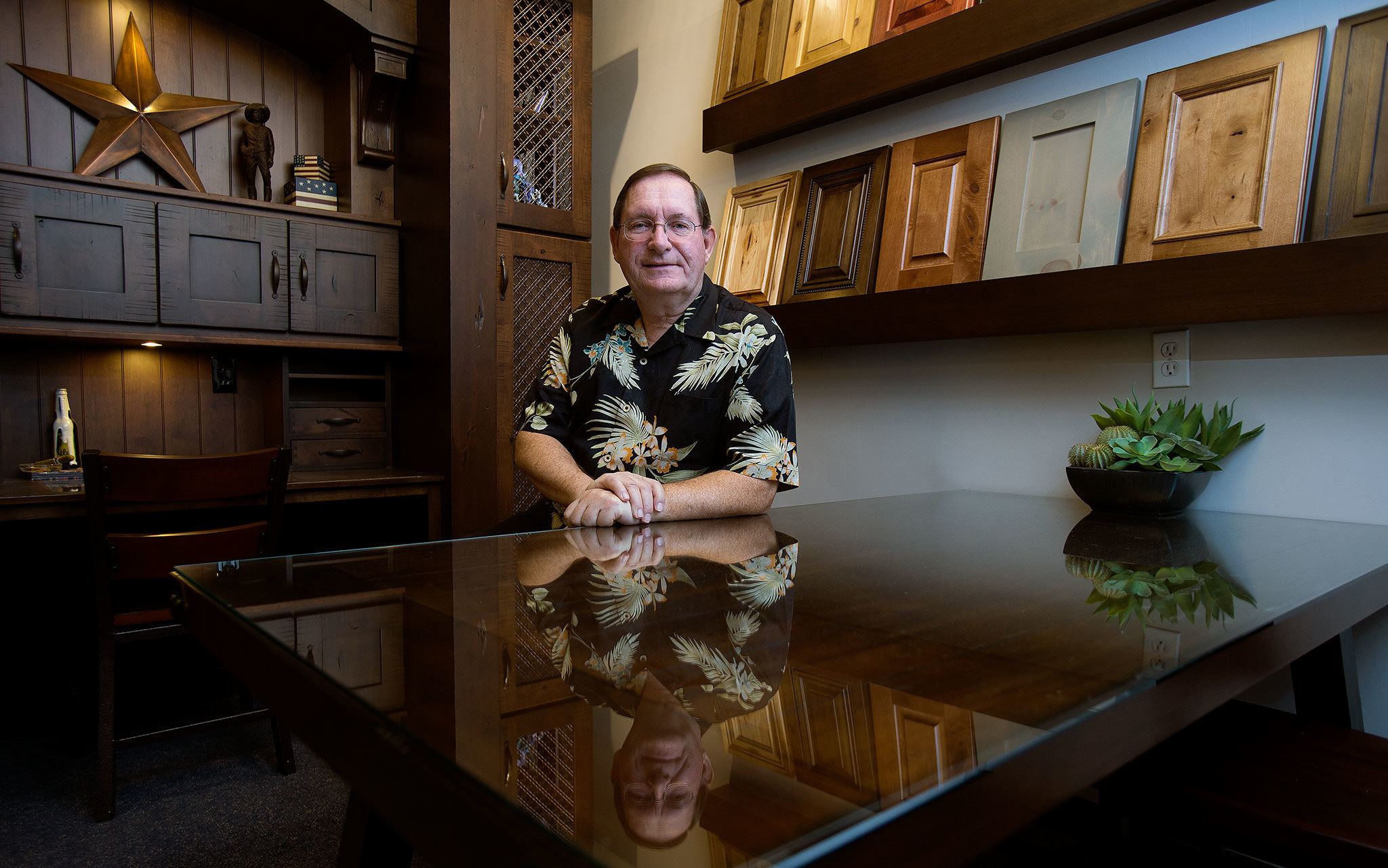MONROE — Bill Weaver recalls contemplating the California landscape decades ago while stationed at Coronado Bay. His four years in the U.S. Navy were coming to a close and he had yet to choose his next path.
“It suddenly hit me that I wanted to make things. I wanted to work with wood,” Weaver says. “Some people go through their entire lives trying to figure out what they want to do. I was blessed to know early and actually did it.”
This month, Weaver is retiring as president and CEO of Canyon Creek Cabinets in Monroe. He joined the company in 1995 when it was in turmoil, verging on bankruptcy and trying to re-establish itself under new ownership. By 2000, he was leading the company on a path of success.
At its 2007 peak, sales were $92 million with a workforce of 715. Under Weaver’s leadership, Canyon Creek successfully survived the recession and downturn in sales. It is surging forward with 2016 projected sales at $60 million and a workforce of 440 employees.
“One of the truest examples of Bill’s great leadership is how he directed Canyon Creek through the recession years,” says Doug McIalwain, showroom manager at Canyon Creek’s Spokane location.
His successor, Bob Foote, was promoted earlier this summer to president. Foote joined Canyon Creek as an executive vice president in January 2015.
Foote’s education, extensive cabinet industry manufacturing experience, along with his team-building leadership skills are expected to be instrumental to the company’s continued success.
Weaver’s business philosophy is rooted in family values. From the age of 4, he worked at his father’s pharmacy stocking candy shelves.
As an adolescent, he worked full time during his summers earning 50 cents an hour. He grew up in a town in New Jersey of only 800 people, so customer service was paramount. He learned the basics of business from dusting to merchandising, selling to window displays.
“Small businesses and entrepreneurs are really the backbone of what runs this county,” Weaver says. “We’re the ones who provide most of the jobs. We enhance people’s lives because they can stay and work in their own communities.”
Part of the original strategy to revitalize Canyon Creek in the mid-1990s was revamping the mission. Weaver helped the company transition into a high-end market with a focus on customization. They pursued and were longtime participants in the Seattle Street of Dreams, a showcase for trends and innovation in luxury housing.
When a new warehouse was built in 1997, Canyon Creek seized the opportunity to implement environmentally friendly practices from the ground up. It included such efforts as using finishes with low-emittance rates. In 2000, it received the Evergreen Award from the Environmental Protection Agency for environmental excellence and leadership in pollution prevention.
Weaver later served as president of the Kitchen Cabinet Manufactures Association where he helped implement national environmental standards. The organization used Canyon Creek’s action plan as a blueprint to establish industry-wide guidelines, which remain in place today.
His dedication to community extends beyond the office.
“You can focus on numbers in business and you do have to do that because it pays the bills. However, you can never lose sight of the people. You’re dealing with their lives and the most important thing you owe them is to make the wisest choices you can,” Weaver says.
He is a longtime and generous benefactor to the Monroe Gospel Women’s Mission through monetary donations, auction fundraising and moral support.
“Bill is incredibly unselfish in what is sometimes a selfish world,” says John Stima, pastor at Monroe Gospel Women’s Mission. “We work with some of the most vulnerable people in our community and help as much as we can. Bill has even helped with basics such as getting a new heater so we can keep the ladies warm every night.”
Weaver’s hands-on leadership has served Canyon Creek, the regional community and affected national change. He is now looking forward to a more hands-on approach to what inspired all of it: woodworking.
From his childhood, he still recalls the sight of curled wood shavings and sounds of planing studs as carpenters remodeled the family home.
He looks forward to returning to his own woodworking and perhaps adding to the family heirloom he crafted, a cherry-and-maple dining set. Perhaps he will finally finish remodeling his own kitchen — a hub of activity for Sunday night family dinners.
The end of December marks his official retirement.
“My plan is to quietly walk out the door. Maybe a few weeks later someone will finally ask, ‘Has anyone seen Bill around lately?’” Weaver says. “I’m leaving things on healthy footing. Now it’s time for new blood and the next generation to lead.”
Talk to us
> Give us your news tips.
> Send us a letter to the editor.
> More Herald contact information.


























